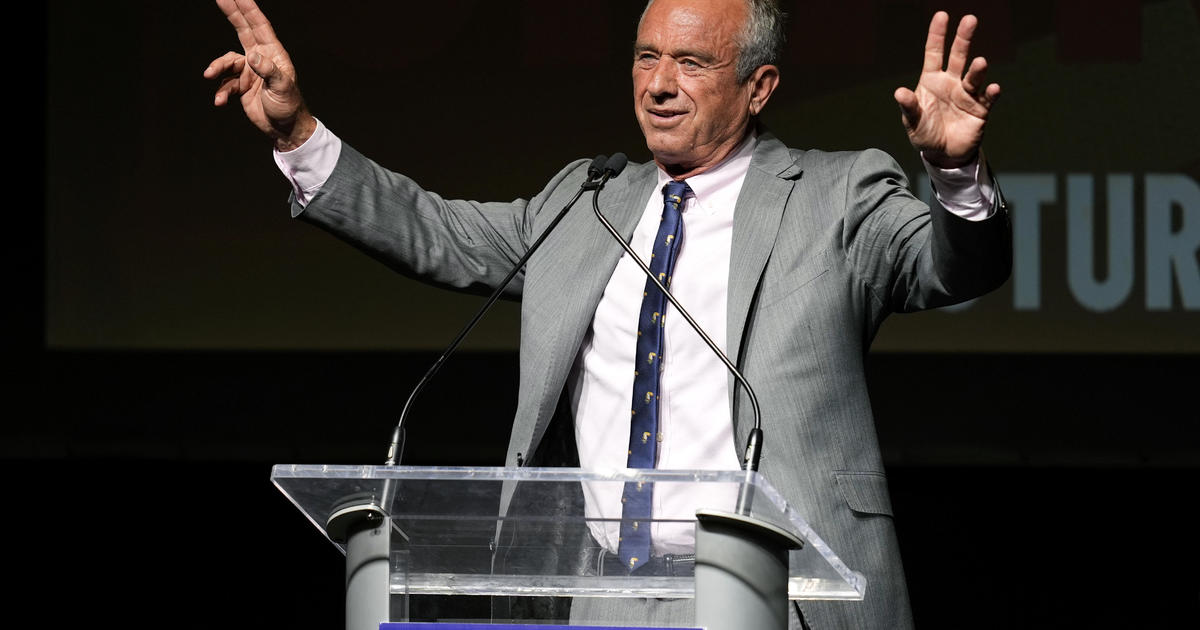Detroit Without Two Black Congressmen For First Time In Half-Century
DETROIT (AP) — U.S. Rep. Gary Peters won a faceoff with a Democratic colleague on Tuesday that will leave Detroit without two black members of Congress for the first time in nearly a half-century, but John Conyers — one of the founders of the Congressional Black Caucus — easily survived a crowded primary fight of his own.
In another closely watched race, Republican tea party favorite and political novice Kerry Bentivolio prevailed in the district abandoned by former Rep. Thaddeus McCotter, who resigned after failing to produce enough valid petition signatures to qualify for the ballot.
Bentivolio's upset of a former state senator backed by local GOP leaders gives Democrats a chance to capture a seat that previously seemed beyond their grasp. Syed Taj, a doctor and township trustee, won the Democratic nomination.
A revised district map and McCotter's surprising exit injected suspense into Tuesday's election in the Detroit area, where there's often little mystery about the outcome of congressional primaries.
Detroit has had two black representatives since 1965, when Conyers took office alongside then-Rep. Charles Diggs. By clinching the Democratic nomination, Conyers is considered the overwhelming favorite to win a 25th term in November.
But Peters, who is white, defeated Rep. Hansen Clarke in a newly drawn, oddly shaped district that winds from downtown Detroit to Pontiac more than 30 miles northwest. Clarke is the son of a South Asian man and a black woman.
McCotter's abrupt resignation because of petition signature irregularities left Bentivolio, a former teacher who raises reindeer near Milford, the lone Republican on the ballot in a suburban district including parts of western Wayne and southwestern Oakland counties. Area GOP leaders supported a write-in campaign by Nancy Cassis, a former state senator, but Bentivolio won easily.
Elsewhere in Michigan, veteran Rep. Fred Upton won a rematch with Jack Hoogendyk, a former state representative from Kalamazoo County's Texas Township whom Upton handily defeated two years ago. Long-timer John Dingell and Reps. Mike Rogers and Tim Walberg won re-nomination over token opponents. Steve Pestka won the Democratic nomination to challenge Rep. Justin Amash, who had no opposition in his bid for re-election in a district including Grand Rapids.
The scramble in southeastern Michigan resulted from a population drain that reduced the state's House delegation from 15 to 14 following the 2010 census. Republicans who controlled the state Legislature crafted new boundaries that placed Peters, a two-term congressman from Oakland County's Bloomfield Township, into the 9th District with veteran Rep. Sander Levin of Royal Oak.
Peters decided instead to run against Clarke in the newly created 14th District, an eclectic blend of inner city and suburban communities and cultures.
Peters showed multiracial appeal by becoming the first white U.S. House candidate supported by The Black Slate, a Detroit activist coalition. Detroit Mayor Dave Bing also endorsed him.
"Our mission is to support candidates who are committed and equipped to best serve the needs of the Detroit community," said Ron Hewitt, the Slate's coordinator.
Peters said before the election he hoped his vote for President Barack Obama's health care program had won respect from people in the new district. It drew heavy criticism from his present constituency.
"When you're voting for someone, you want to know what they do when times are tough," Peters said.
Clarke, a freshman backed by a number of labor unions,
He announced last month he wouldn't participate in campaign debates because of "racist rhetoric and race-baiting by certain candidates" His statement didn't accuse anyone by name.
Although from Detroit, he said he didn't feel disconnected from Oakland County residents whom he would represent in the new district.
"They have the same interests," he said. "The people I know (there) lived in Detroit. They had to move out because of crime and poor schools."
The other hopefuls were Southfield Mayor Brenda Lawrence; former state Rep. Mary Waters, who pleaded guilty to filing a false tax return in a 2010 federal corruption case; and Bob Costello, a retired magistrate.
Through the end of June, Peters had raised $1.8 million and had $813,000 on hand — tops among candidates in the race, according to an analysis by the nonpartisan Michigan Campaign Finance Network. Clarke was second with $684,000 raised and $381,000 on hand.
Conyers, 83, revered by many constituents as a 1960s-era civil rights pioneer, easily took the most votes in a five-way race that represented his stiffest challenge in years. His district remains majority-minority even after being redrawn, but some contended the Judiciary Committee's ranking Democrat had lost a step after serving nearly 47 years in Congress. Supporters said his seniority is valuable to a state struggling to retain its political muscle and noted that Obama had endorsed him.
Conyers said his extensive name recognition overcame spirited campaigning by his opponents.
"It's very gratifying, especially under the circumstances that we had so many new parts of the 13th District," he told The Associated Press.
He defeated state Rep. Shanelle Jackson of Detroit, state Sens. Glenn Anderson of Westland and Bert Johnson of Highland Park; and local school board member John Goci of Westland.
McCotter appeared certain to win a sixth term in a district that legislators retooled in his favor, removing Democratic-leaning turf.
Then came the shocking news that McCotter failed to gather enough valid signatures to qualify for the ballot. He resigned this month.
Cassis didn't have time to get on the ballot but spent $200,000 of her own money on her write-in campaign.
Hoogendyk contended Upton, a 25-year incumbent and chairman of the House Energy and Commerce Committee, isn't conservative enough, although Upton is a sharp critic of the Obama administration's health care and environmental policies and has the endorsement of Right to Life of Michigan. He has raised $3.1 million to about $123,000 for Hoogendyk.
"The base that would be inclined to vote for me, a tea party conservative, is much more motivated to get to the polls on election day than his forces are," Hoogendyk said.
Upton said Hoogendyk would never match his seniority and influence, but insisted he was taking nothing for granted.
"You run two ways — unopposed or full speed ahead," Upton said. "Whether it's last time or this time, we're doing ... all the things to make sure that when you wake up the next day that there was nothing that you should have done."
Dingell, the longest serving member presently in Congress, overwhelmed Daniel Marcin of Ann Arbor, a fellow Democrat born when Dingell was 60.
(© Copyright 2012 The Associated Press. All Rights Reserved. This material may not be published, broadcast, rewritten or redistributed.)



